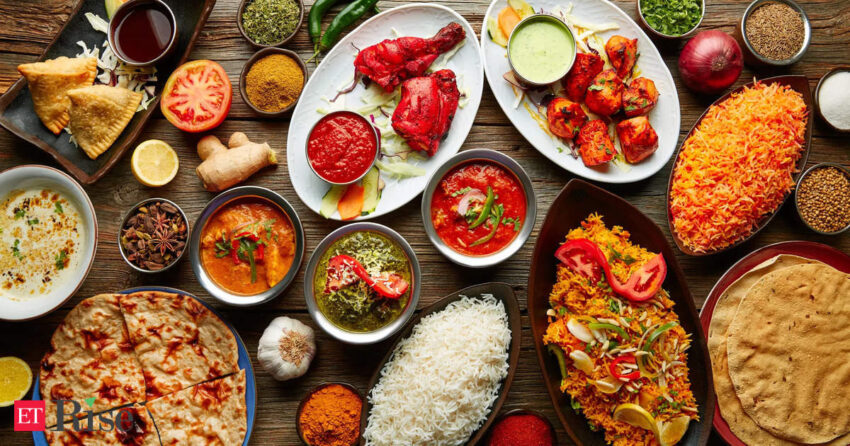Anurag Katriar, Trustee, Nationwide Restaurant Affiliation of India (NRAI) and Founder, Indigo Hospitality says that a number of coverage help is required for the F&B sector within the Funds. “This major concept is to convey again the vibrancy within the sector and make it higher. Alongside, we have to scale back restrictions on the working hours as effectively – we must always get out of the paleolithic mindset that it’s essential to shut down companies by a sure hour. Longer hours imply extra employment, greater enterprise volumes and higher revenues for the Authorities.”
Katriar provides that if a $5 trillion financial system is the purpose, both hours of enterprise should enhance or there must be a excessive emphasis on ecommerce for the sector. “The ecommerce coverage has been within the works for some time however is taking too lengthy. The present guardrails aren’t adequate to forestall the pursuits of small companies, particularly in MSME class. Ecommerce might help us in a giant manner in enhancing the scale of the sector – if we herald an equitable and truthful coverage the place ever stakeholder thrives profitably, it might profit your complete sector,” he states.
India has been engaged on an ecommerce coverage since 2018, however it has been topic to many delays. The draft nationwide ecommerce coverage addresses six broad areas of the ecommerce ecosystem like information, infrastructure growth, ecommerce marketplaces, regulatory points, stimulating home digital financial system and export promotion by ecommerce.
Commenting on how gamers resembling Swiggy and Zomato are making a foray into private-label meals supply by their platforms Snacc and Bistro respectively, Katriar says that this transfer primarily interprets to finish misuse of information by the aggregators. “It’s because we do not need a well-defined ecommerce coverage. {The marketplace} can’t be a market participant as effectively. Sadly, such gamers have develop into digital landlords and utilizing information of our companies to create their market dominance,” he states ruefully. By the way, in its suggestions on the F&B sector Funds proposals, restaurant physique NRAI has additionally hunted for a good ecommerce coverage. “Balanced insurance policies and laws are required to allow a level-playing area the place platforms can proceed to innovate whereas eating places, supply companions and customers are shielded from doubtlessly exploitative practices,” it highlighted in its press word. It additionally advised granting business standing for the meals providers sector, given its vital contribution to the nation’s financial system. “I hope that the finance minister will contemplate our request favourably for enhancing the expansion of the business. I consider that our recommendations for a devoted Ministry/Division for the restaurant business might be a sport changer, and can result in an exponential development of the sector,” Sagar Daryani, President, NRAI stated in an announcement.
Specialists additionally spotlight the restoration of GST Enter Tax Credit score to reinforce profitability for the sector. Anand Ramanathan, Associate, client merchandise and retail sector chief, Deloitte India talks about how regulatory measures and funding incentives might help in giving the sector a much-needed push. “As the price of operations grows, F&B gamers are on the lookout for Enter Tax Credit score (ITC) to scale back payable GST. Micro, Small and Medium Enterprise classes needs to be provided prolonged moratoriums on curiosity payable. Apart from this, implementation of the PLI scheme advantages in areas the place India is a web importer can be steps in the precise route,” he says.
When it comes to the sub-segments inside the F&B sector that needs to be given a lift, Ramanathan mentions meals processing, millets, and sustainable merchandise as key areas of focus. “There’s a shift in client demand in the direction of sustainable and natural merchandise. These embody different protein sources, native meals, nutraceuticals, and personalised diet. Enabling manufacturing of such progressive merchandise are required to capitalise on the development,” he provides.
Giving an impetus to Fast Service Eating places (QSRs) and homegrown manufacturers is one other key ask. “QSRs are remodeling city and semi-urban eating by their comfort, affordability, and integration with digital supply platforms. Focused incentives can speed up their development and assist in modernisation. Apart from this, encouraging indigenous meals manufacturers by incentives and advertising and marketing help can strengthen their presence in home and worldwide markets, boosting employment and cultural identification,” Rahul Seth, Co-Founder, Burger Singh states.
Boosting the well being of this sector can indicate creating extra jobs and enabling alternatives for entrepreneurship. Simplifying GST buildings, single-window clearances and well-defined insurance policies that assist the business gamers keep aggressive and worthwhile are the necessity of the hour for the F&B sector to outlive and thrive.








